Search
Remove Ads
Advertisement
Summary 
Loading AI-generated summary based on World History Encyclopedia articles ...
Search Results
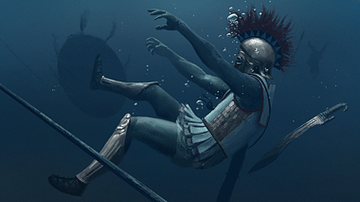
Definition
Atlantis
Atlantis is a legendary city described by the Greek philosopher Plato (c. 429 – 347 BCE). Atlantis, a fabulously wealthy and advanced civilization, was swept into the sea and lost forever in a story which has captured the imagination of readers...

Image
Flying Shuttle
A flying shuttle, used in the textile industry to pull thread (weft) horizontally across longitudinal threads (the warp) on a weaving frame. The device was invented by John Kay in 1733 and greatly speeded up textile production. (Immigration...
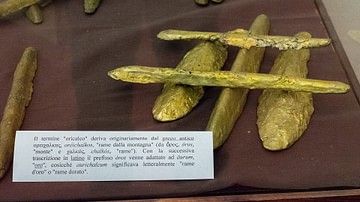
Definition
Orichalcum
Orichalcum ("mountain copper") or aurichalcum ("gold copper") was a metal used in coins during ancient times. Orichalcum was a golden-yellow coloured mixture consisting of both copper and zinc and referred to as brass. The Romans were the...
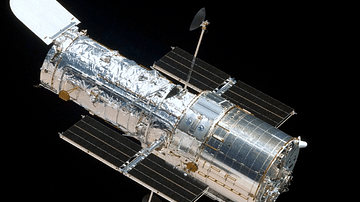
Image
The Hubble Space Telescope
The Hubble Space Telescope which was launched into space by NASA in 1990.
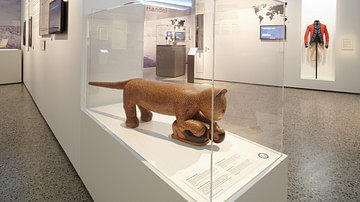
Image
Swiss Colonial Entanglements Exhibition Space
View of the Swiss Global Entanglements exhibiton at the National Museum Zurich from 13.9.2024 - 19.1.2025.
Copyright: Swiss National Museum. Used with permission (Press release).

Video
Sarah Parcak: Archeology from space
http://www.ted.com In this short talk, TED Fellow Sarah Parcak introduces the field of "space archeology" — using satellite images to search for clues to the lost sites of past civilizations. TEDTalks is a daily video podcast of the best...

Definition
Francis Bacon
Francis Bacon (1561-1626) was an English philosopher, statesman, and author. Bacon is often considered one of the founders of modern scientific research and scientific method, even as "the father of modern science" since he proposed a new...
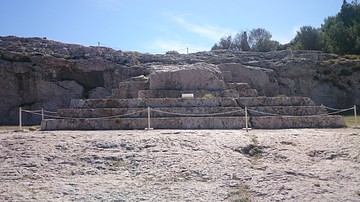
Definition
Critias
Critias (l. c. 460-403 BCE) was an Athenian politician, poet, and playwright, one of Socrates' followers, Plato's second cousin, a leading member of the Thirty Tyrants of Athens, and leader of the oligarchy they established. He is referenced...
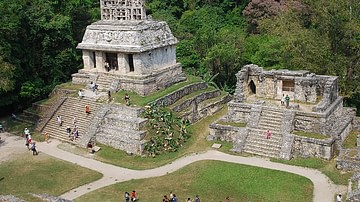
Article
Early Explorers of the Maya Civilization: From Aguilar to Waldek
Although John Lloyd Stephens and Frederick Catherwood are consistently credited with the `discovery' of the Maya Civilization, there were many who preceded them who sparked their interest in making their famous travels through Mesoamerica...
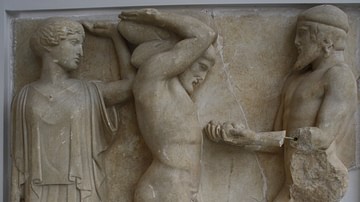
Definition
Atlas - The Greek Titan Who Held up the World
In Greek mythology, the Titan Atlas was responsible for bearing the weight of the heavens on his shoulders, a burden given to him as punishment by Zeus. Father of many stars and a protagonist in one of Hercules' famous labours, Atlas was...